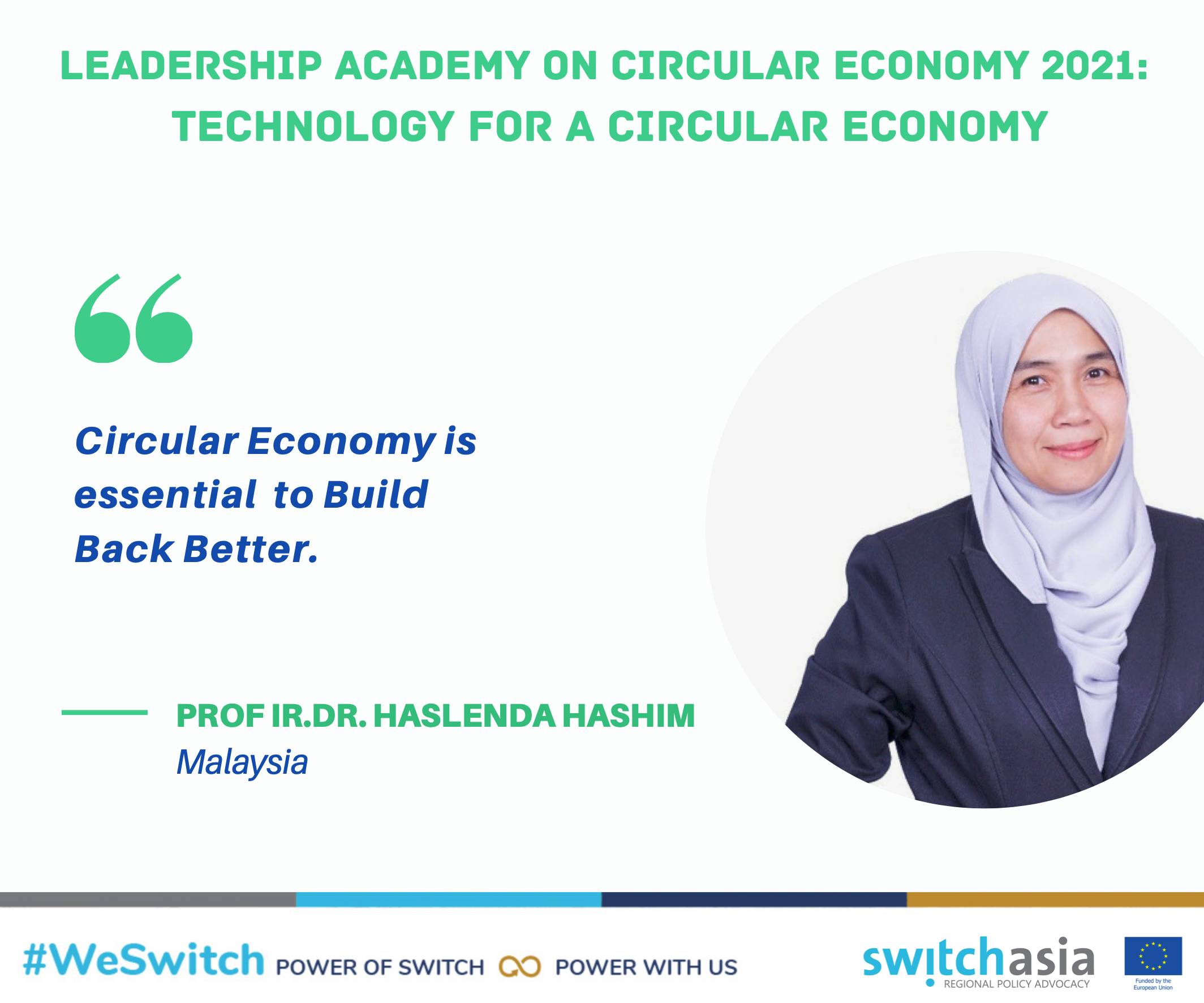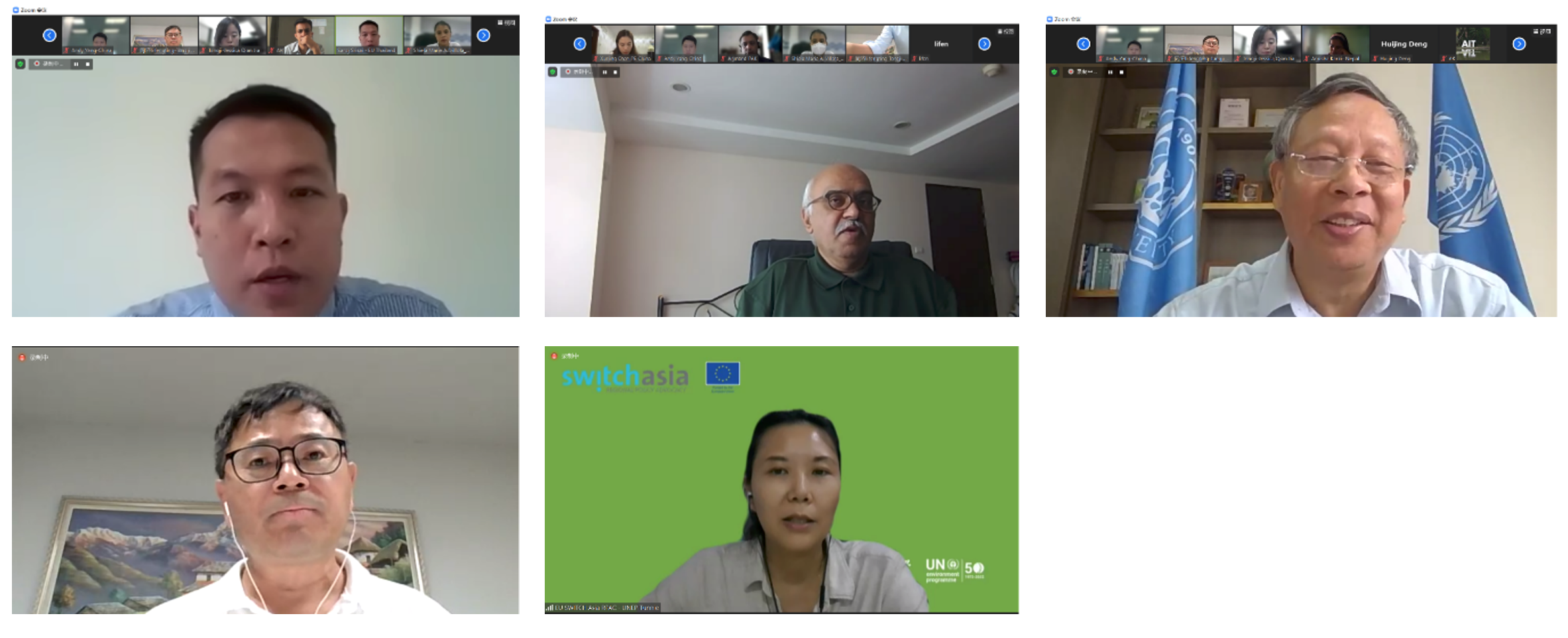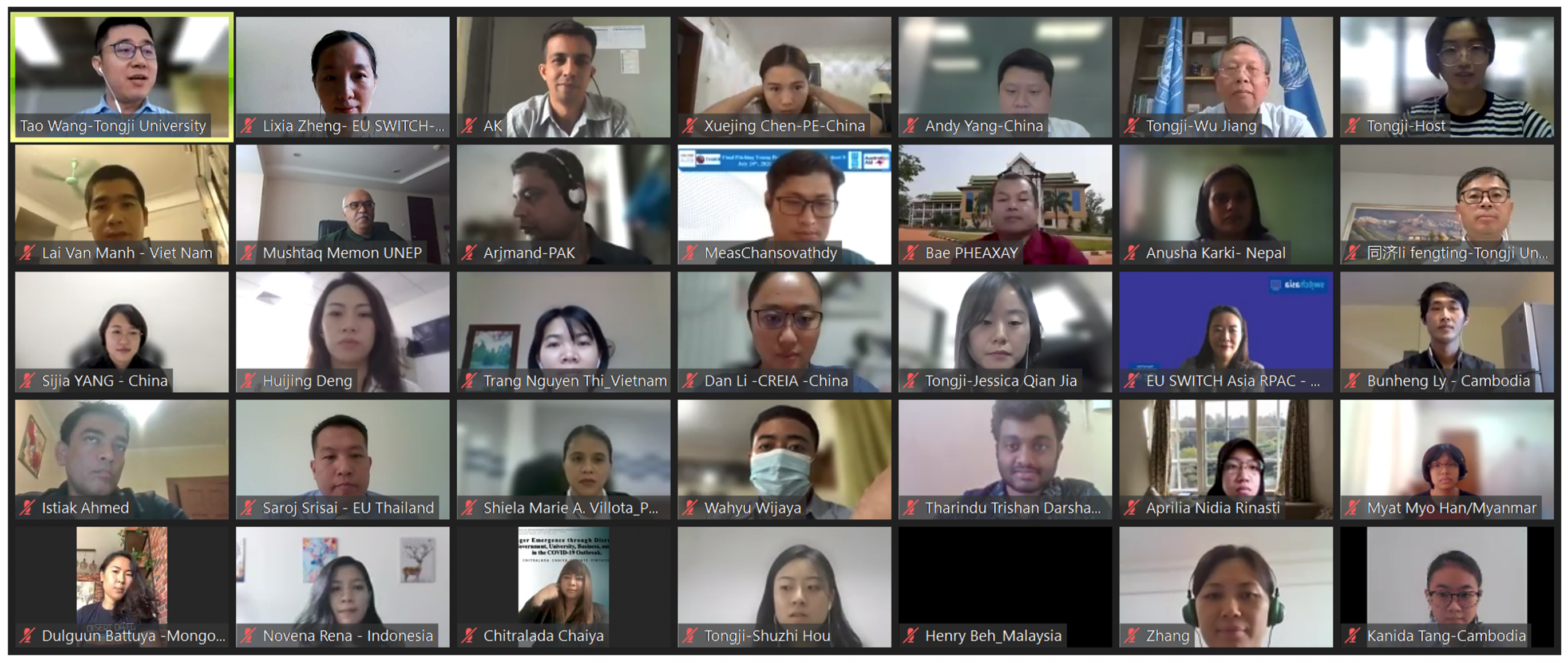
On 6th to 8th September 2021, to inspire actions on innovative technologies towards circular economy among young professionals in Asia, the EU SWITCH-Asia 2021 Leadership Academy on Technology for A Circular Economy, as a flagship activity of the SWITCH-Asia programme, was successfully organised virtually, in partnership with United Nations Environment Programme and Tongji University. The academy received 110 qualified applications from government, academia, private sector and civil society covering 16 Asian countries, among which 44 young professionals were finally selected and attended the three-day virtual training programme.
12 notable scientists, academics and entrepreneurs from Asia and Europe demonstrated the concept and theory of Circular Economy (CE), the roles of technologies for Circular Economy, sustainability framework of technology, technology for a resource-efficient and consumer-empowered Circular Economy, and circular design strategies. The case studies on waste management, waste water treatment, nexus system of food, energy and water resources, and green technology innovations on renewable energy, sustainable tourism and food waste reduction, focusing on various technology application and feasibility analysis were materialized to successful participants through interactive approaches.
44 young professionals with different backgrounds discussed and finally completed the group projects through breakout group works based on discussions and the theoretical knowledge learnt from the three-day training and the draft training manual provided. The six group projects analysed and proposed valuable findings in the following six areas/sectors with case studies from various Asian countries,
- Technology related challenges and opportunities in developing a circular economy to realize SDG targets
- Role of technology in the transition towards a circular economy in Asian cities
- Renewable energy technologies in developing countries in Asia
- Circular design and technologies supporting the development of eco-industrial Park (EIP)
- Technology solutions to reduce food waste
- Technologies for sustainable and circular tourism

On September 6th, the academy started with a welcome remark by Dr. Mushtaq Memon, Resource Efficiency Sub-programme Regional Coordinator at UNEP Regional Office for Asia and the Pacific. On behalf of UNEP, Dr. Memon congratulated all applicants on clearing the rigorous selection process, appreciated Tongji University for supporting and collaborating efforts and thanked the European Union for their generous support on SCP through the SWITCH-Asia Programme.
The academy continued with the welcoming remarks from Professor WU Jiang, Dean of UNEP-Tongji Institute of Environment for Sustainable Development (IESD). Prof. Wu emphasised the importance to promote sustainable development toward a low-carbon, resource-efficient economy, with a focus on young Asian professionals to cultivate a culture for applying innovative green solutions that can apply in their respective spaces and backgrounds.
Mr. Saroj Srisai, Programme Officer, Cooperation Section, Delegation of European Union to Thailand, introduced the EU Switch-Asia programme and highlighted the European Green Deal strategy and all of its eight interlinked pillars leading Europe towards carbon neutrality by 2050. He highlighted the roles of technology for the transition to a circular economy, and stressed the importance on bilaterial and regional cooperation through SWITCH-Asia programme in the field of sustainable consumption and production.
Professor LI Fengting, the Deputy Executive Dean of UNEP-Tongji Institute of Environment for Sustianable Development appreciated the EU SWITCH-Asia programme and highlithed the importance on training of Circular Economy and green economy for young professionals towards the achievement of SDGs in Asia.
Ms. Tunnie Srisakulchairak, the Programme Management Officer of the EU SWITCH-Asia RPAC, UNEP Regional Office for Asia and the Pacific, at the closing session, highly encouraged participants to be pioneers in their communities in demonstrating how circular economy can be applied and is beneficial to enhance sustainable development.
Through the three-day training, participants have increased their knowledge and capacity to understand and identify which technologies can be used for promoting Circular Economy, circular strategies, and the contribution of circular technologies to SDGs, especially when it comes to renewable energy, waste management, water and food systems. The key features and benefits of a circular economy in comparison to a linear economy have also been discussed and understood. The support the EU SWITCH-Asia programme was appreciated by both participants and speakers through the organised leadership academy.

Contact details:
Dr. Mushtaq Ahmed Memon
Resource Efficiency Sub programme Regional Coordinator
UNEP Regional Office for Asia and the Pacific
Project Manager, EU SWITCH-Asia Regional Policy Advocacy Component (RPAC)
Email: [email protected]


